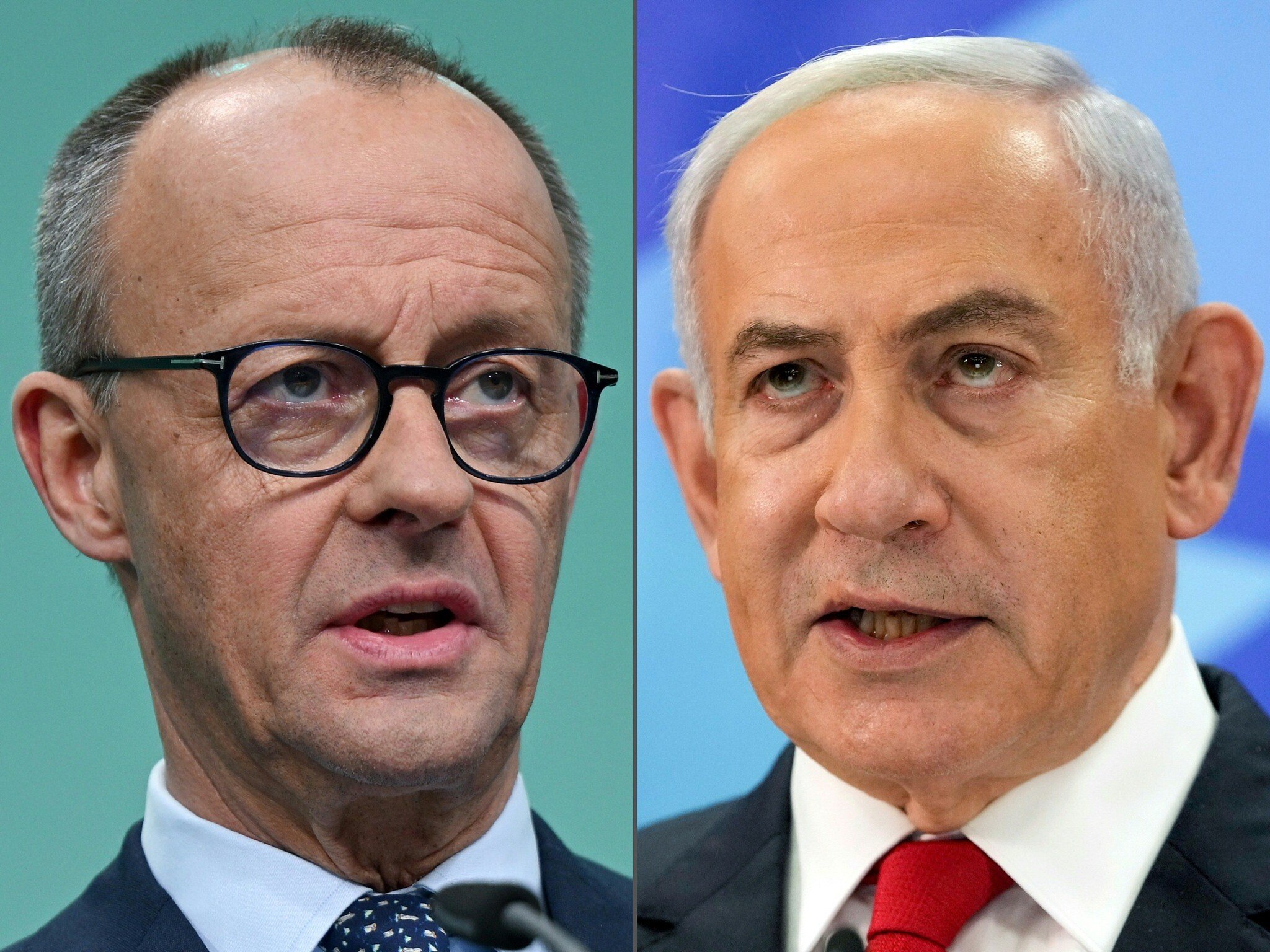



Twenty-two months into the war in Gaza, Israel’s foreign relations appear to have deteriorated further, with German Chancellor Friedreich Merz’s recent announcement of an arms embargo threatening to put the entire Israeli defense industry in a challenging position.
The German halt on selling Israel offensive weapons that could be used in Gaza comes as Israeli citizens, some with no connection to the Gaza war, have been facing threats in multiple countries.
Israeli companies have suffered property damage and anti-Israel demonstrations take place daily around the world. Meanwhile, Israel’s international trade relations are under pressure.
The defense industry remains the country’s strongest export sector, but now it too faces potential disruption. The announcement from Germany – which provides nearly a third of Israel’s arms imports – caught Jerusalem by surprise, as it was not preceded by an explicit warning from Berlin.
Whether Netanyahu himself understood Germany’s level of frustration prior to the announcement of its decision is unclear. Critics argue that his office has struggled to handle the international arena as the war has dragged on, with his attention divided between foreign relations and maintaining his governing coalition.
Defense trade is deeply affected by international politics and perceptions, and global press coverage of humanitarian conditions in Gaza plays a significant role. International leaders have strongly objected to Israel’s plans to evacuate 800,000 Gazans from Gaza City and conduct a major offensive there.
The embargo by Germany, Israel’s close ally, could encourage other European capitals to halt arms sales, and possibly to stop buying Israeli-made weaponry.
Merz’s announcement was part of a swift wave of international backlash after the Israeli cabinet’s vote last week to approve the Gaza City operation. In Germany, the speed and tone of the reaction marked a significant departure from the country’s prior policy of strong support for Israel, born of its sense of historical responsibility following the Holocaust. Up until now, Germany was Israel’s second-largest arms supplier, after the United States.
The conservative Merz had himself previously been a prominent critic of his predecessor, Olaf Scholz, for what he said was insufficient backing for Israel.
Unlike neighboring France, Germany does not face internal pressure from a large Muslim population to criticize Israel. The previous governing coalition included the Green Party, which held the foreign ministry and had pressed for stricter compliance with international law in arms exports. That coalition left office earlier this year.
German arms deliveries to Israel dropped sharply in the war’s second year, with analysts saying the decline could be interpreted as a signal of German dissatisfaction — though Israeli officials did not previously treat it as such.
When asked in late May about Spain and others halting arms sales to Israel, German Foreign Minister Johann Wadephul said his country “is always obliged to assist Israel in guaranteeing its security.”
But that same day, Merz told Germany’s WDR public radio, “Honestly speaking, I no longer understand what the Israeli army is now doing in the Gaza Strip, with what goal.”
He added, “The way in which the civilian population has been affected, as has been increasingly the case in recent days, can no longer be justified by a fight against Hamas terrorism.”
Now, Germany’s qualms have led to real, harmful action. On Friday, Prime Minister Benjamin Netanyahu called Merz to convey his disappointment.
“Instead of supporting Israel’s just war against Hamas, which carried out the most horrific attack against the Jewish people since the Holocaust, Germany is rewarding Hamas terrorism by embargoing arms to Israel,” his office said in a statement issued in English.
Netanyahu also told Merz that Israel’s goal “is not to take over Gaza, but to free Gaza from Hamas and enable a peaceful government to be established there.”
At the same time, the prime minister has refused to lay out a plan for enabling such a government to be formed.
Some diplomats saw Netanyahu’s public comments to Merz as more of a moral admonition than a calculated effort to bridge differences. Despite the Holocaust’s role in shaping German policy toward Israel, a defense industry figure involved in procurement between the countries told The Times of Israel that Netanyahu’s invocation of the Holocaust in this context risked further complicating relations.
“If Jerusalem starts invoking the Holocaust repeatedly and attacking the chancellor over this, it means Israel is not interested in solving the situation but only in isolating itself from the world,” one source told The Times of Israel.
According to the Stockholm International Peace Research Institute (SIPRI), which tracks global arms transfers, 69 percent of Israel’s arms imports in 2019-2023 came from the United States and 30% from Germany, largely due to multibillion-euro submarine and corvette procurement agreements for the Israeli navy.
These purchases were intended to enable Israel to protect its gas rigs and maritime space. But they have also been politically sensitive in Israel due to the so-called submarine affair investigation, in which German shipbuilder ThyssenKrupp’s $2 billion sale of the vessels to Israel came under scrutiny for alleged corruption and bribery.
In the Gaza war’s first year, Germany approved $355 million in arms sales to Israel, of which about 6% was classified under German export law as “offensive,” or designed for use in combat outside the purchaser’s territory. That portion included munitions, bulletproof vehicles, armored trucks and anti-tank missiles. In the second year, total sales fell to $135 million, according to German government data published in local media.
The implementation of Merz’s decision will depend on how German ministries interpret it. Committees in the defense, economy, foreign and possibly finance ministries review arms deals, determining whether items are for Israel’s defense or are offensive weapons for use in Gaza. While the distinction is clearer regarding munitions, it becomes murkier when it comes to delivering equipment for German ships Israel has already bought.
The extent of the embargo could also change. The Bundestag could expand it via new legislation, but defense industry sources also say the decision’s discretionary scope suggests Israel could mitigate its impact through diplomacy. They note that Israel could open a two-month window for dialogue by emphasizing that the Gaza City plan is scheduled to start only in October.
Such an effort, the sources say, would require Israel to treat the decision seriously and send senior envoys – such as Foreign Minister Gideon Sa’ar or President Isaac Herzog – to engage with Berlin directly.


